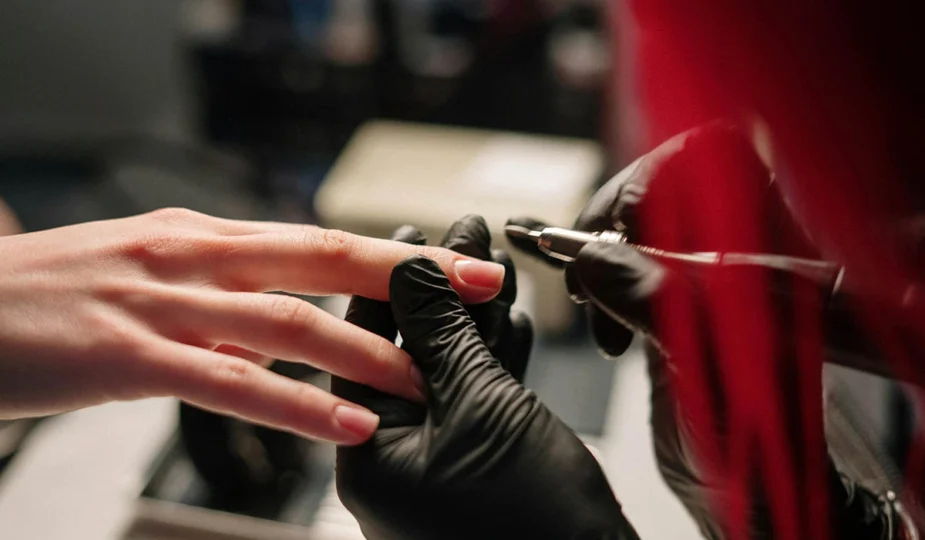Nail Techs, Let’s Get Legal
Hey nail techs! Ever wondered why having proper legal documents is essential for your business? Well, let’s talk about a quick story. Imagine this: Jane, a talented nail tech, didn’t think she needed formal documentation. One day, a client had an allergic reaction to a product, and bam! Legal troubles galore. Sadly, Jane faced costly legal consequences all because she lacked the right paperwork.
Don’t let this be you! In this article, we’ll dive into the essential legal documents you need to protect your nail tech business, keeping things smooth and drama-free. Ready? Let’s get into it!
The Foundation: Business License & Certification
First things first, you need a solid foundation. A business license and the relevant certifications are your starting points. Think of them as your official permission slip to operate legally and build client trust.
Steps to Obtain a Business License:
- Research local regulations: Each area has different requirements.
- Complete necessary applications: Your city or county clerk’s office can guide you.
- Pay the fees: Usually, there’s a small fee involved.
The Importance:
Having a business license not only makes you legit but also helps you avoid fines. Certifications, on the other hand, showcase your skills. It’s like flashing a badge that says, “I know my stuff!” Clients feel more at ease knowing you’re certified. So, don’t skip these crucial steps!
Protecting Your Hard Work: Service Agreements
Now that you’re licensed and certified, let’s talk service agreements. A service agreement is a contract between you and your clients outlining the services you provide and the terms involved.
Key Elements of a Service Agreement:
- Service details: What exactly are you offering?
- Payment terms: How and when will payments be made?
- Cancellation policy: What happens if the appointment is canceled?
- Liability clause: Limits your liability for unforeseen issues.
Why They’re Important:
These agreements protect both you and your clients. Imagine a client claims they didn’t know about your no-show policy. With a service agreement, you have everything in writing! This not only saves you from potential disputes but also sets professional boundaries. So, draw up those agreements and get them signed!
Cover Your Bases: Client Waivers
Let’s move on to client waivers. These are documents your clients sign to acknowledge potential risks involved in nail treatments, like allergic reactions.
Types of Situations Covered by Client Waivers:
- Allergic reactions to products: Yes, it happens!
- Nail damage: Sometimes nails are fragile, and accidents occur.
- Health conditions: Specific conditions may affect how treatments can be performed.
Example Language for Waivers:
“I acknowledge that I have informed [Your Business Name] of any allergies or health conditions I may have. I understand the risks involved in nail treatments and agree not to hold [Your Business Name] liable for any adverse reactions.”
These waivers clarify that clients understand the risks, protecting you from potential lawsuits. Ensure they read and sign these before any service begins!
Safeguarding Relationships: Employee Contracts
If you have staff, employee contracts are non-negotiable. They outline job duties, expectations, and protect both parties involved.
Critical Components of an Employee Contract:
- Job description: Clearly define roles and responsibilities.
- Compensation: Detail salary, wages, or commission structure.
- Work hours: Set expectations on working hours and breaks.
- Non-compete clause: Prevents employees from joining competitors right after leaving.
Why They’re Important:
Employee contracts help in maintaining a harmonious work environment. They ensure everyone is on the same page, reducing misunderstandings and potential disputes. Are you ready to create a positive workplace? Start drafting those contracts!
Keeping It Confidential: Privacy Policies
Handling client information requires serious attention to privacy. Your privacy policy outlines how you collect, store, and use that information.
Legal Requirements:
- Disclosure of data collection: State what information you collect.
- Data usage: Explain why and how you use client data.
- Data protection measures: Describe how you protect client information.
Tips for Drafting:
Keep it simple and clear. Avoid legal jargon that might confuse clients. An example could be, “We collect your contact information to provide and improve our services. We keep this information secure and never share it without your consent.”
A solid privacy policy builds client trust, showing that you respect their privacy and comply with legal standards.
Transaction Transparency: Receipts and Invoices
Transparency in financial transactions is a must. Providing detailed receipts and invoices not only looks professional but is also legally beneficial.
Why Detailed Receipts and Invoices Are Crucial:
- Proof of purchase: Essential for tax purposes and disputes.
- Transparency: Clients know exactly what they’re paying for.
- Record-keeping: Helps track revenue and expenses.
Must-Have Details:
- Business name and contact info: Clients need to know who they dealt with.
- Service breakdown: Itemize the services provided.
- Payment details: Reflect total cost and method of payment.
This level of detail keeps your books organized and builds client confidence.
When Things Get Tricky: Liability Insurance
Liability insurance is like your business’s safety net. It protects you in case things go south.
The Role of Liability Insurance:
Imagine a client slips in your salon or has an extreme reaction to a product. Liability insurance covers legal fees and compensation, saving your business from financial ruin.
Types of Insurance Plans:
- General liability: Covers accidents and injuries in your salon.
- Professional liability: Covers claims related to your professional services.
Insurance might seem like an extra cost, but it’s a lifesaver when unexpected incidents happen. Real-world example? A fellow tech had a client trip and file a lawsuit. Luckily, insurance covered all costs. Moral of the story: Get insured!
Now You’re On Point!
Wow, look at you, all legally savvy! Recap: ensuring you have business licenses, service agreements, client waivers, employee contracts, privacy policies, detailed receipts, and liability insurance can save you from a world of trouble. These documents bring peace of mind and professionalism to your nail tech career.
Ready to protect your business like a boss? Time to review and update those legal documents. Your future self will thank you!









